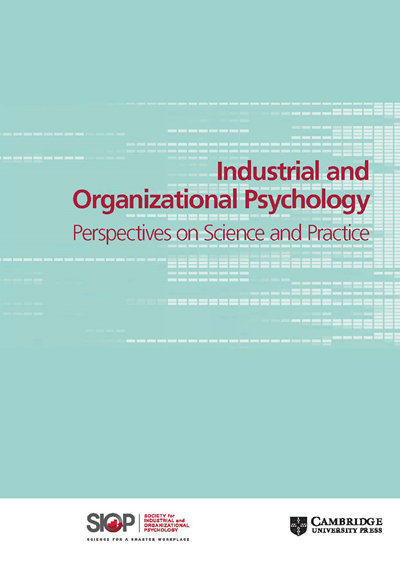教师和母亲的双重作用:成功应对的有利资源
IF 4.3
3区 心理学
Q1 PSYCHOLOGY, APPLIED
Industrial and Organizational Psychology-Perspectives on Science and Practice
Pub Date : 2023-05-09
DOI:10.1017/iop.2023.1
引用次数: 1
摘要
加布里埃尔等人(出版中)详细介绍了学术界母亲面临的关键问题。我们希望加强这一观念,因为学术界的母亲面临着歧视,面临着独特的障碍,不像那些挑战没有孩子的男性或女性同行的人。简而言之,母亲有一种特殊的脆弱性,这是由于她们作为女性和父母的双重身份造成的。首先,从女性的角度来看,女性需要应对工作场所的性别歧视,例如,晋升中的玻璃天花板,相对于同等职位的男性的低工资以及性骚扰(例如,Karami et al., 2020)。在与科学、技术、工程和数学相关的STEM职业中,女性的代表性严重不足。此外,女性在学术界的代表性随着教师资历水平的上升而下降,这使得从初级到高级教师职位的晋升成为问题(Corbett & Hill, 2015)。其次,从(学术的)“父母的角度”来看,挑战包括,例如,在给定的终身教职期内,应对职业上的滴答滴答,出版出版物,以及在同一关键时期处理怀孕和养家糊口的问题。试图单独处理每一种类别,却忽略了识别学术母亲的独特情况。根据这一声明,我们回应Gabriel等人的“行动呼吁”,并冒昧地建议学术界如何支持女性学者进行必要的改革。此外,我们在评论之前声明,我们分享了我们对这一主题的研究兴趣(例如,Greenberg & Kurlander, 2022)和我们作为学术界母亲的立场的看法。最后,在提出我们的建议之前,我们要强调三点:本文章由计算机程序翻译,如有差异,请以英文原文为准。
The dual role of faculty and motherhood: Enabling resources for successful coping
Gabriel et al. (in press) detail critical issues facing mothers in academia. We would like to strengthen that notion because mothers in academia face discrimination and confront unique barriers, unlike those challenging their male or female counterparts with no children. Put succinctly, mothers have a specific vulnerability resulting from their intersectional status as women and parents. First, from the perspective of womanhood, women need to cope with gender discrimination in the workplace, manifested, for example, in a glass ceiling in promotion, low pay relative to men in equivalent positions, and sexual harassment (e.g., Karami et al., 2020). In STEM professions – careers related to science, technology, engineering, and mathematics – severe underrepresentation of women is prevalent. Furthermore, the representation of women in academia declines as one goes up in faculty seniority level, which makes the promotion from junior to senior level faculty positions problematic (Corbett & Hill, 2015). Second, from the (academic) “parent perspective,” challenges include, for instance, coping with the occupational ticking clock for producing publications within a given tenure track period and dealing with pregnancy and raising a family during the same critical period. The attempt to deal with each category separately misses the mark of identifying the academic mother’s unique situation. Consequent to this declaration, we respond to Gabriel et al.'s (in press) “call to action” and venture to suggest necessary changes in how scholarly women are supported in academia. Moreover, we preface our comments by stating that we share our perceptions from both our research interest in the subject (e.g., Greenberg & Kurlander, 2022) and our stance as mothers in academia. Finally, before presenting our recommendations, we would like to emphasize three points:
求助全文
通过发布文献求助,成功后即可免费获取论文全文。
去求助
来源期刊

Industrial and Organizational Psychology-Perspectives on Science and Practice
PSYCHOLOGY, APPLIED-
CiteScore
7.70
自引率
10.10%
发文量
85
期刊介绍:
Industrial and Organizational Psychology-Perspectives on Science and Practice is a peer-reviewed academic journal published on behalf of the Society for Industrial and Organizational Psychology. The journal focuses on interactive exchanges on topics of importance to the science and practice of the field. It features articles that present new ideas or different takes on existing ideas, stimulating dialogue about important issues in the field. Additionally, the journal is indexed and abstracted in Clarivate Analytics SSCI, Clarivate Analytics Web of Science, European Reference Index for the Humanities and Social Sciences (ERIH PLUS), ProQuest, PsycINFO, and Scopus.
 求助内容:
求助内容: 应助结果提醒方式:
应助结果提醒方式:


